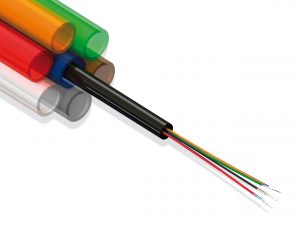Achieving seamless online working
October 14th, 2020

In the present environment, businesses rely even more on communications technology for day to day business activities and virtual meetings have become commonplace. But relying on the Internet can cause frustration with stuttering video, disjointed conversations and delayed online transactions.
Larger businesses achieve reliable and secure communications between sites and data centres by employing virtual private networks that offer the performance guarantees necessary for seamless online activities.
PTT’s online course “Introduction to wide area networks” discusses how such guarantees are provided and the choices business have for the most appropriate network technology.
The latest updated version of this course describes how wide area networks (WANs) have changed to reflect the increasing reliance on cloud services. The principles and benefits of software defined WANs (SD-WANs) are also discussed.
PTT’s “Introduction to wide area networks” can be studied on its own or as part of the “PTT Level 3 Certificate in Unified Communications” study programme.
Comments Off on Achieving seamless online working
COVID-secure apprenticeship delivery
September 1st, 2020

Ensuring apprenticeships can continue during the current pandemic in a COVID-secure way is critically important for young peoples’ future.
With that aim, the UK government is encouraging training providers to deliver training to apprentices remotely and via e-learning as far as is practicable.
PTT is already supporting the successful delivery of digital apprenticeships for companies in the ICT sector with our online courses and remote assessment tools.
We can support the delivery of apprenticeship that conform to standards such as Unified Communications Technician and Network Engineer.
We would welcome the opportunity to discuss with you how we can assist in adapting your apprenticeships for remote learning and assessment. Contact us here >>
Comments Off on COVID-secure apprenticeship delivery
Fibre kick starting the world wide web
August 4th, 2020

The introduction of optical fibre cables in the 1980s revolutionised communications. It could be argued that the installation of the TAT-8 transatlantic optical cable directly contributed to the birth of the world wide web and the exponential growth of the Internet.
In 1989, IBM funded a dedicated circuit between Cornell University and the European research centre CERN which used what was then regarded as the high capacity of TAT-8. This provided Tim Berners-Lee with a direct connection to the NSFnet, the forerunner of the public Internet, allowing him to demonstrate his invention, the world wide web.
PTT has just released two updated courses covering the principles and operation of protocols initially developed for NSFnet and which now drive most communications systems. These courses are “Internet protocols” and “IP networks“.
Comments Off on Fibre kick starting the world wide web


